Posts Tagged "Online Sales Trends"
Articles
- Best Marketing Conference Sponsorship
- What Does it Mean to Be an Exhibitor at a Conference?
- What Is the Biggest Social Media Conference?
- What Is an Innovation Conference?
- What Is a Typical B2B Event?
- What Are the Cloud Technology Events in 2025?
- Marketing Event Volunteer Opportunities: A Comprehensive Guide
- Digital Marketing Event Volunteer Opportunities Near Me
- What Does a Volunteer Do at a Conference?
- Is DigiMarCon Worth It?
- Is DigiMarCon Good?
- What is the Biggest Marketing Forum?
- What are Digital Marketing Conferences?
- Marketing Conference Exhibiting: Your Guide to Success
- Digital Summit Comparison: A Closer Look at DigiMarCon
- Digital Marketing Conference
- Digital Marketing Events: Your Guide to Success in 2025
- Marketing Conferences: Unlocking Your Business Potential in 2025
- What Is The Future of Digital Marketing in 2030?
- B2B Event Marketing Strategy: Unlocking Success For Your Business
- Why B2B Event Marketing?
- What Should a B2B Marketing Strategy Include?
- Top Marketing Conferences for 2025
- What Is the Future of Marketing in 2025?
Digital Marketing Conferences
- NORTH AMERICA
- DigiMarCon Cruise
(New Orleans, LA, USA) - DigiMarCon West
(Los Angeles, CA, USA) - DigiMarCon Northwest
(Seattle, WA, USA) - DigiMarCon Canada West
(Vancouver, BC, USA) - DigiMarCon Canada
(Toronto, ON, Canada) - DigiMarCon Canada East
(Montreal, QC, Canada) - DigiMarCon Florida
(Orlando, FL, USA) - DigiMarCon Gulf Coast
(Houston, TX, USA) - DigiMarCon Southern California
(San Diego, CA, USA) - DigiMarCon Midwest
(Chicago, IL, USA) - DigiMarCon Mid-South
(Nashville, TN, USA) - DigiMarCon Great Lakes
(Detroit, MI, USA) - DigiMarCon North
(Minneapolis, MN, USA) - DigiMarCon Central
(Kansas City, MO, USA) - DigiMarCon Texas
(Dallas, TX, USA) - DigiMarCon New England
(Boston, MA, USA) - DigiMarCon Mid-Atlantic
(Philadelphia, PA, USA) - DigiMarCon South Florida
(Miami, FL, USA) - DigiMarCon Southeast
(Atlanta, GA, USA) - DigiMarCon Central Florida
(Tampa, FL, USA) - DigiMarCon East
(New York, NY, USA) - DigiMarCon South Atlantic
(Charlotte, NC, USA) - DigiMarCon America
(Washington, D.C. USA) - DigiMarCon Northern California
(San Francisco, CA, USA) - DigiMarCon Rocky Mountains
(Denver, CO, USA) - DigiMarCon South
(San Antonio, TX, USA) - DigiMarCon Silicon Valley
(San Jose, CA, USA) - DigiMarCon Orange County
(Anaheim, CA, USA) - DigiMarCon Southwest
(Phoenix, AZ, USA) - DigiMarCon World
(Las Vegas, NV, USA)
- DigiMarCon Cruise
- LATIN AMERICA
- EUROPE
- MIDDLE EAST
- AFRICA
- ASIA PACIFIC
- DigiMarCon Hawaii & Pacific
(Honolulu, HI, USA) - DigiMarCon Asia & Japan
(Tokyo, Japan) - DigiMarCon New Zealand
(Auckland, New Zealand) - DigiMarCon Australia
(Sydney, Australia) - DigiMarCon Oceania
(Melbourne, Australia) - DigiMarCon Southeast Asia
(Singapore) - DigiMarCon India
(New Delhi, India) - DigiMarCon North Asia & China
(Shanghai, China)
- DigiMarCon Hawaii & Pacific
- VIRTUAL
Digital Marketing Blog
- What Makes DigiMarCon Stand Out (And Is It Worth It?) October 30, 2025
- Is DigiMarCon Worth Attending? A Complete Breakdown October 29, 2025
- DigiMarCon for Startups: Why Founders Shouldn’t Miss It October 29, 2025
- DigiMarCon Recap: What Went Down and What’s Next October 29, 2025
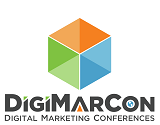


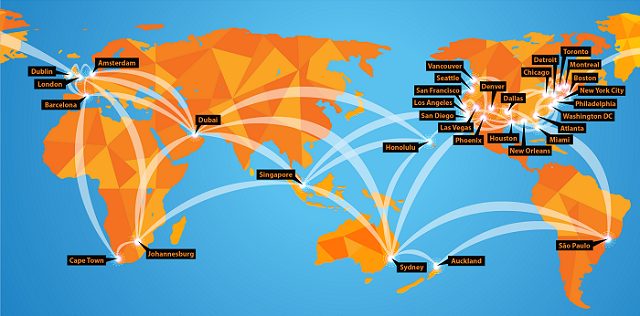

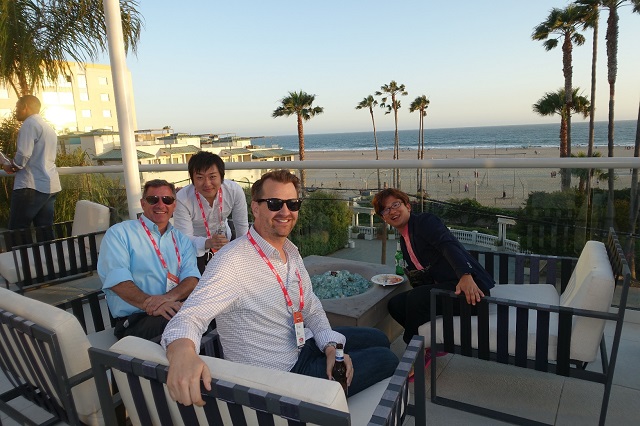
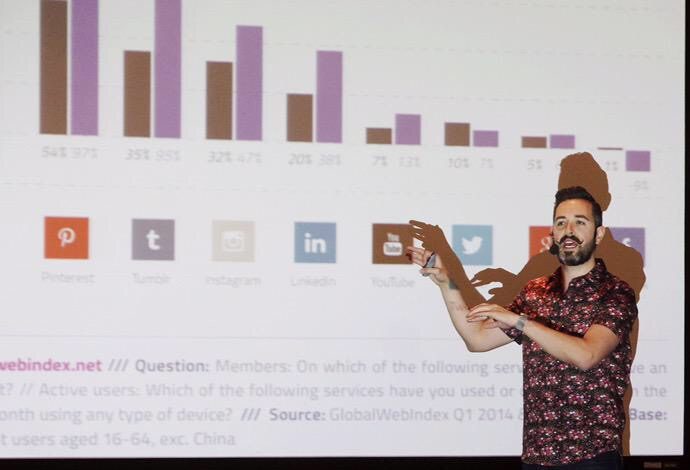




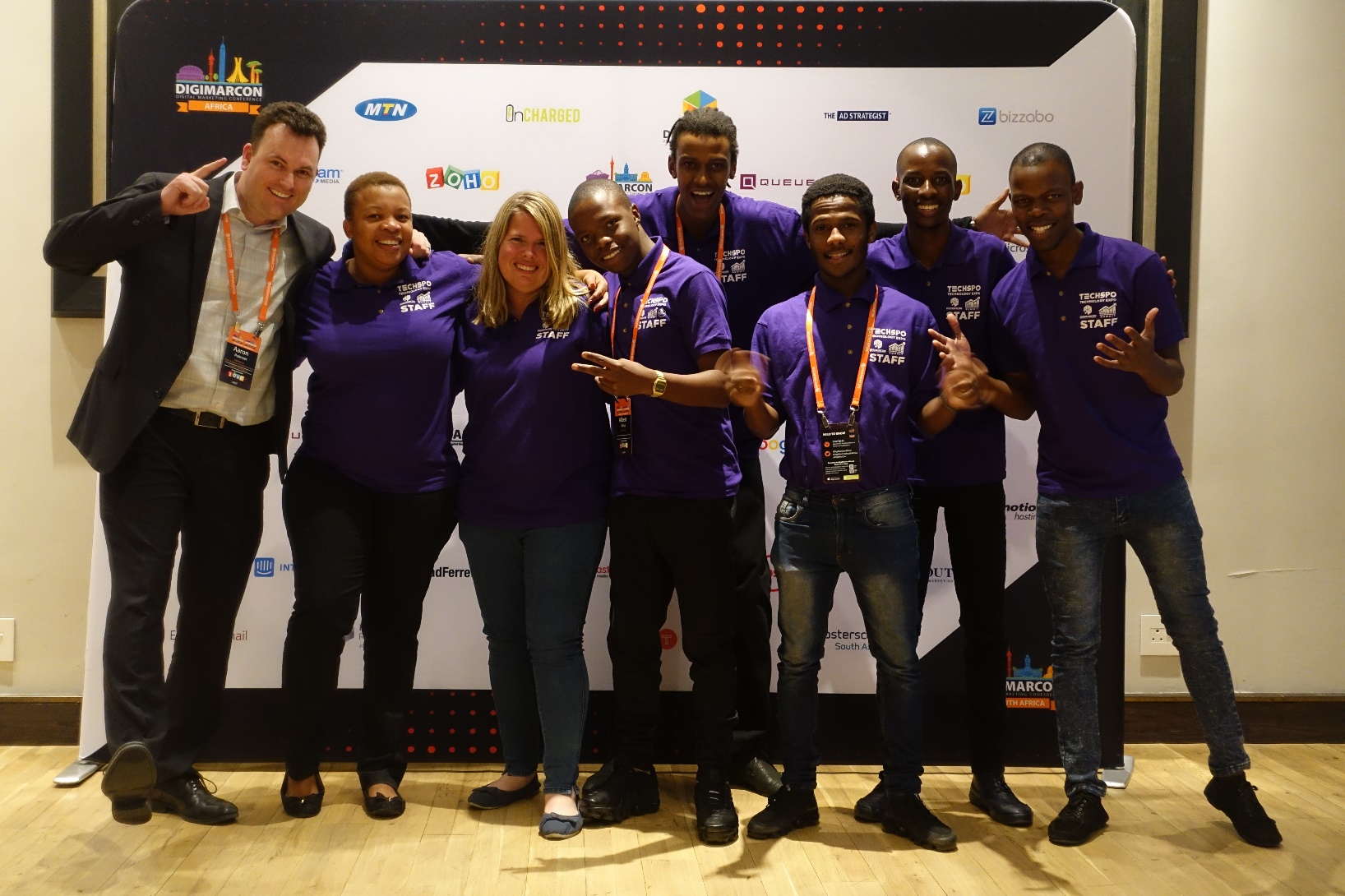

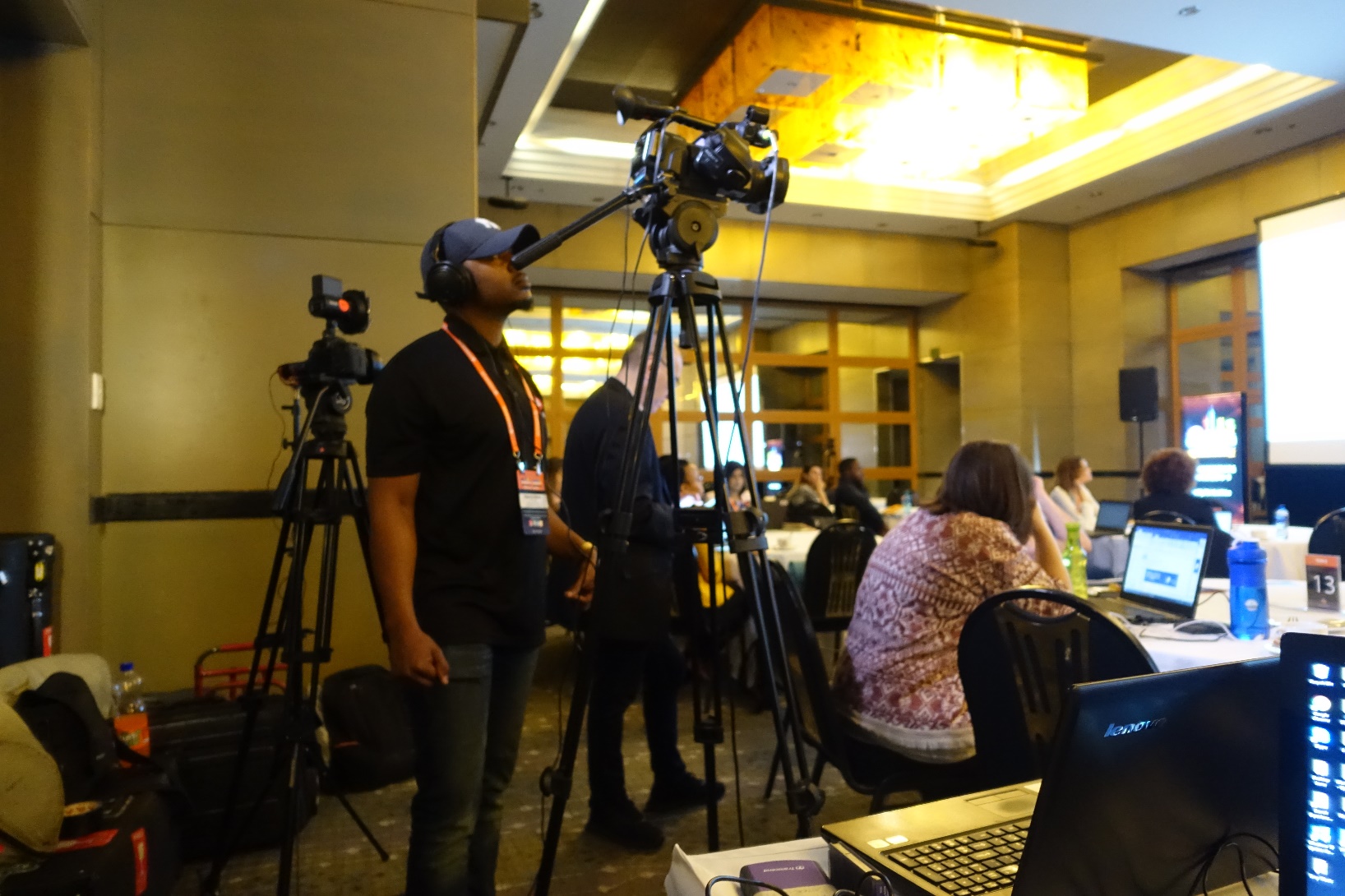



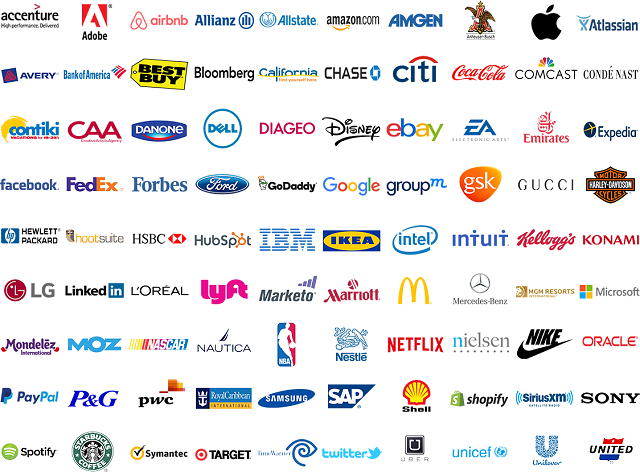















Social Commerce: Unlocking the Future of Online Sales
The digital marketplace is changing fast. Social media platforms are becoming key sales channels. More people are shopping online, and businesses are combining their e-commerce with social media.
This mix of online sales and social media has created a new way: social commerce. Businesses use social media’s interactive nature to offer unique shopping experiences. This approach boosts customer engagement and sales.
As e-commerce and social media merge, knowing about social commerce is key. It helps businesses stay competitive in the online sales world.
The Rise of Social Commerce in the Digital Marketplace
Social media and shopping are now closely linked. Social commerce is a big trend in online shopping. Social media platforms are now key parts of the online shopping journey.
Thanks to mobile tech, shopping online is easier than ever. People can go from looking at products on social media to buying them right away. This change is due to better mobile sites, safe payment options, and how people shop today.
From Browsing to Buying: The New Customer Journey
The way we shop online has changed. Now, we can find products, read reviews, and buy them all in one place. This makes shopping online better and easier.
Social commerce is growing fast. More companies are adding shopping features to their social media. As
, says an industry expert.
To make the most of this trend, businesses need to get social commerce. They should use social media to create fun shopping experiences. This can help sell more and keep customers coming back.
The Evolution of Online Shopping Experiences
The rise of mobile devices has changed online shopping a lot. Now, people can shop anywhere, anytime. This change is thanks to mobile technology, which makes it easy to buy things online.
How Mobile Technology Accelerated Social Commerce
Mobile technology has been key in making social commerce grow fast. Most people use social media on their phones. This lets businesses reach more people easily.
Now, people can shop online right from social media apps. This makes shopping online smoother and more fun. Businesses use mobile technology to sell more and keep customers happy.
Why Social Commerce Matters for Modern Businesses
Social commerce is changing how businesses talk to customers and sell products. Social commerce mixes social media and online shopping. It lets businesses show off their products right in social media.
This change is big for Generation Z and Millennials. They are tech-smart and often buy things because of social media.
Generation Z and Millennial Shopping Preferences
Generation Z and Millennials want shopping experiences that are personal and fun. They like finding new things on social media. There, they can talk to brands, read reviews, and see what others think.
To meet these needs, businesses need to use social commerce. They should make interesting content, work with influencers, and use social media’s interactive tools.
This way, businesses can get more people to know about them. They can also sell more and keep customers coming back, thanks to the younger crowd.
Major Social Commerce Platforms and Features
Online shopping is changing fast, thanks to major social commerce platforms. These platforms are changing how businesses work and how we shop online.
Facebook, Instagram, and Pinterest are leading the way. Each has special features that make shopping better. For example, Instagram’s Shopping lets businesses tag products in posts and stories. This makes it simple for customers to buy what they see.
Emerging Platforms to Watch
New platforms are also making waves. TikTok has started letting businesses sell products through the app. Snapchat is also getting better at shopping.
These new platforms offer exciting chances for businesses to connect with their audience. Keep an eye on them as they grow.
E-commerce Integration Strategies for Social Media
Businesses are now focusing on combining e-commerce with social media. This move helps them reach more people, improve customer service, and make online sales smoother.
To make e-commerce and social media work together well, there are a few important things to think about. These include inventory management and order fulfillment. Keeping inventory levels in sync across different platforms helps avoid selling out and reduces the chance of stockouts.
Inventory and Order Management Considerations
Handling inventory and orders well is key to a good e-commerce strategy. Businesses should use inventory management software that works with their social media. This keeps everything up to date and cuts down on mistakes.
By following these steps, businesses can make their e-commerce and social media work together better. This improves their online sales and helps them grow in the digital world.
Building Effective Social Media Shopping Experiences
The rise of social commerce has made it crucial for brands to focus on creating great social media shopping experiences. As more people use social media to find and buy products, businesses need to adapt. They must meet these changing expectations.
Creating a successful social media shopping experience starts with a mobile-first design approach. Most social media users access platforms on their phones. A mobile-first design makes sure the shopping experience works well on small screens and with touch.
Mobile-First Design Principles
Mobile-first design involves several key strategies:
By focusing on these elements, businesses can create a smooth and engaging customer experience. This drives conversions and builds brand loyalty. As social media evolves, delivering great shopping experiences will be key for brands to succeed.
By embracing mobile-first design and focusing on customer experience, businesses can fully tap into social media shopping. They can stay ahead in the fast-changing digital marketplace.
Leveraging Influencer Marketing for Social Selling
Influencer marketing is key in social selling, helping businesses reach their audience. By working with influencers, brands gain credibility and reach. This boosts sales and awareness.
The success of influencer marketing depends on the influencer type. This is where micro and macro influencers play a big role.
Micro vs. Macro Influencer Strategies
Micro influencers have 1,000 to 100,000 followers. They offer a dedicated audience and focus on specific topics. They’re perfect for targeting certain groups or promoting unique products.
Macro influencers have millions of followers. They’re great for big brand campaigns. They help spread the word and drive lots of traffic to products or services.
Choosing between micro and macro influencers depends on goals, audience, and budget. A mix of both can be the best strategy. It helps brands reach both specific and wide audiences.
The key to influencer marketing success is picking the right influencers and creating engaging content. This way, businesses can maximize influencer marketing’s potential. They can drive sales and growth in the social commerce world.
Customer Engagement Tactics in Social Commerce
Social commerce is growing fast, and good customer engagement is key. It helps drive sales, build loyalty, and make shopping memorable.
Real-time engagement and live shopping events are big in this area. They let brands talk directly to their audience. Live shopping, for example, lets customers ask questions and get answers right away.
Real-Time Engagement and Live Shopping Events
Real-time engagement means talking to customers on social media right when they want to. Brands can use live streams to show off products and share behind-the-scenes stuff. A social media expert says, “Live shopping is changing how brands connect with people, making shopping more fun and interactive.“
To get the most out of these methods, brands should make their content engaging. They should also use influencers and share content made by their customers. This way, they can give customers a more engaging and fun shopping experience.
Digital Marketing Platforms for Social Commerce Success
In today’s digital world, choosing the right platforms is key for social commerce success. Businesses aim to make the most of social media. Digital marketing platforms help them plan and improve their online sales.
These platforms bring together different marketing tools and channels. This gives a clear view of how customers interact with them. It helps create campaigns that speak to their audience, boosting engagement and sales. Plus, advanced analytics let businesses check how well their campaigns are doing in real-time.
Analytics and Performance Measurement
Good analytics and performance measurement are vital for social commerce success. By watching things like click-through rates and conversion rates, businesses learn what works. This knowledge helps them make better marketing choices.
To get the most out of digital marketing platforms, businesses need to focus on performance measurement. This means looking at how well each campaign does and its overall effect on social commerce goals. This way, they can spot what needs work and use their resources better, leading to social commerce success.
Case Studies: Digital Retailing Transformations
The rise of social commerce has changed digital retailing a lot. Many businesses have seen great success. Companies like Sephora and Nike have led this change. They use social commerce to better engage with customers and boost sales.
Sephora uses Instagram to show off products and give tutorials. This has raised brand awareness and increased website traffic and sales. Nike also uses social media to introduce new products. This creates a community among its customers.
Lessons Learned and Best Practices
Looking at these examples, we learn important lessons. Personalization is key. Businesses should use data to know what customers like and market to them that way.
Another important practice is to make shopping easy across all platforms. This means combining e-commerce with social media. It lets customers buy products right from their favorite platforms.
By following these strategies, businesses can change their digital retailing for the better. This helps them grow and stay ahead in a fast-changing market.
Overcoming Challenges in the Social Commerce Landscape
Social commerce is promising but faces challenges like security and trust. Businesses must tackle these issues to succeed.
Security and Trust-Building Measures
To tackle these challenges, businesses can take several steps:
Trust-building is also key. It can be done by:
By focusing on these areas, businesses can overcome social commerce challenges. This helps build trust and drives success in social commerce.
Conclusion
As the digital world keeps changing, businesses must keep up to stay ahead. Social Commerce is key for online sales, helping brands connect with customers and boost sales.
Using big social commerce sites, combining e-commerce plans, and creating great shopping experiences online are all important. Influencers and keeping customers engaged are also vital for success in social commerce.
To lead in the digital market, businesses should focus on Digital Marketing. This helps grow online sales. By using social commerce and staying updated, companies can improve their online image and succeed in the long run.
FAQ
What is social commerce, and how does it differ from traditional e-commerce?
Social commerce uses social media to sell products or services. It’s different from traditional e-commerce because it focuses on social interactions. This makes online shopping more engaging.
How can businesses effectively integrate e-commerce into their social media strategies?
Businesses should aim for a smooth shopping experience on social media. Use high-quality images and work with influencers. This boosts engagement and sales.
What are some key considerations for inventory and order management in social commerce?
Managing inventory and orders well is crucial. Make sure products are available and orders are fulfilled quickly. Use systems that connect with social media to avoid overselling.
How can businesses measure the success of their social commerce initiatives?
Track important metrics like conversion rates and customer costs. Use analytics from digital marketing platforms to see how you’re doing.
What role does influencer marketing play in social selling, and how can businesses leverage it effectively?
Influencer marketing helps reach your audience through trusted voices. Find the right influencers, create engaging content, and monitor your campaigns’ success.
What are some best practices for building effective social media shopping experiences?
Use mobile-friendly designs and create engaging content. Use user-generated content and make checkout easy. This boosts conversions.
How can businesses overcome security and trust-building challenges in social commerce?
Use strong security like encryption and clear data practices. Be open about how you use data. Good customer service builds trust.
What are some emerging trends and platforms that businesses should be aware of in social commerce?
Watch for live shopping events and TikTok’s growth. Augmented reality (AR) and virtual try-ons are also key. They improve the online shopping experience.